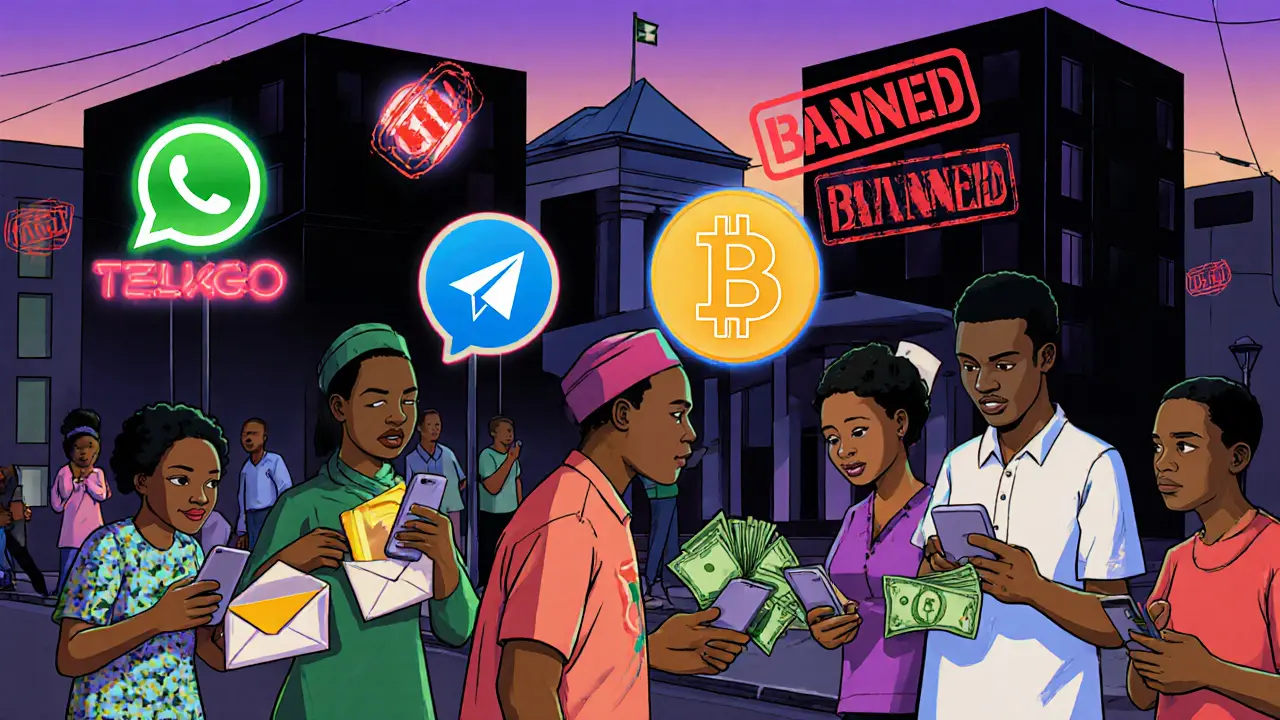
Despite a 2021 ban on banks handling crypto, Nigeria's underground crypto economy thrived through peer-to-peer trading, WhatsApp groups, and Telegram networks, becoming one of the world's largest and most innovative digital asset markets.
When you're in Nigeria and want to buy Bitcoin or USDT without a bank holdup, Binance P2P, a peer-to-peer trading platform that connects buyers and sellers directly without a middleman. Also known as Binance peer-to-peer, it lets you trade fiat like Naira for crypto using local payment methods like bank transfer, mobile money, or even cash deposits. This isn’t just a feature—it’s a lifeline for millions who can’t use traditional banking or face high fees on local exchanges.
Binance P2P Nigeria works because it bypasses the broken banking system. Traders post ads saying they’ll sell 1 BTC for 5.2 million Naira via First Bank transfer. You pick an ad, pay the seller directly, and Binance holds the crypto until you send proof of payment. The platform acts as a escrow, not a bank. But here’s the catch: Nigerian bank transfers, a common payment method for P2P trades in Nigeria are reversible. If a seller claims they never got paid—despite showing a screenshot—you could lose both your money and your crypto. That’s why scams are common. Some sellers use fake screenshots or pressure you to pay via untraceable methods like airtime or gift cards. Always use Binance’s built-in chat, never leave the platform, and only trade with verified sellers who have 50+ completed trades and a 98%+ rating.
Another layer? Naira volatility, the rapid fluctuation in the value of Nigeria’s national currency makes timing critical. A trader might lock in a rate of 1,500 Naira per USDT today, but if the Naira drops 10% overnight, they might cancel the trade or demand more. Binance doesn’t control exchange rates—sellers do. That’s why prices vary wildly between ads. Some offer 10% below market rate to attract buyers fast. That’s not a deal—it’s a red flag. Look for consistency, not bargains.
And don’t assume Binance P2P is safe just because it’s Binance. The platform doesn’t guarantee your funds if you ignore their rules. If you pay outside the system, or accept a trade that asks for ID photos or bank login details, you’re on your own. Nigeria’s Central Bank doesn’t recognize crypto as legal tender, and while P2P isn’t illegal, it’s unregulated. That means no recourse if you’re scammed. The only protection is your own caution.
What you’ll find below are real, no-fluff guides on how to avoid getting ripped off on Binance P2P Nigeria. We cover the exact steps to verify sellers, how to spot fake payment proofs, why some ads are too good to be true, and what to do if your trade gets stuck. You’ll also see how other Nigerian traders are using P2P to send money abroad, pay for services, or hold value when the Naira crashes. These aren’t theories—they’re lessons from people who’ve lost money and learned the hard way.

Despite a 2021 ban on banks handling crypto, Nigeria's underground crypto economy thrived through peer-to-peer trading, WhatsApp groups, and Telegram networks, becoming one of the world's largest and most innovative digital asset markets.